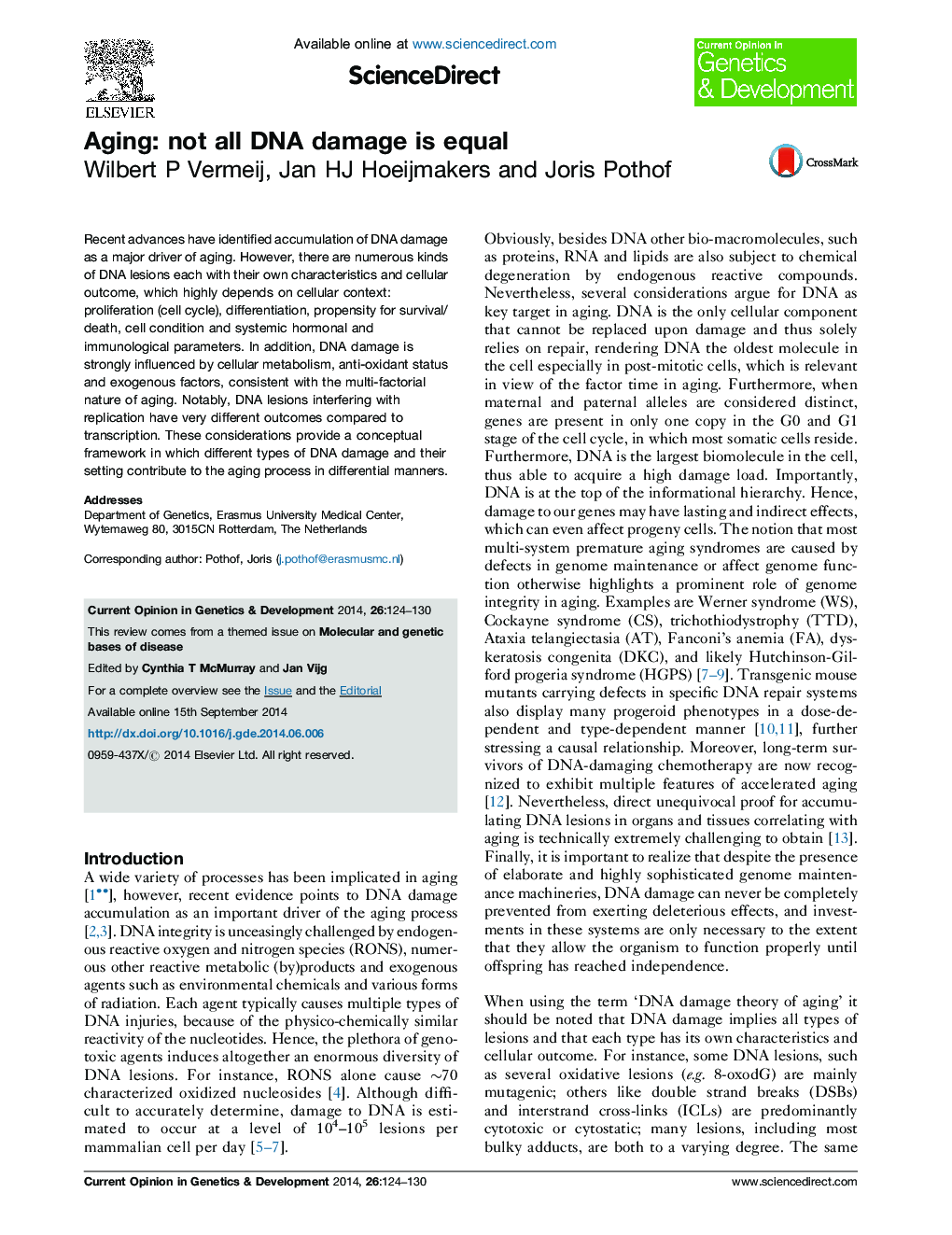| Article ID | Journal | Published Year | Pages | File Type |
|---|---|---|---|---|
| 5893369 | Current Opinion in Genetics & Development | 2014 | 7 Pages |
Recent advances have identified accumulation of DNA damage as a major driver of aging. However, there are numerous kinds of DNA lesions each with their own characteristics and cellular outcome, which highly depends on cellular context: proliferation (cell cycle), differentiation, propensity for survival/death, cell condition and systemic hormonal and immunological parameters. In addition, DNA damage is strongly influenced by cellular metabolism, anti-oxidant status and exogenous factors, consistent with the multi-factorial nature of aging. Notably, DNA lesions interfering with replication have very different outcomes compared to transcription. These considerations provide a conceptual framework in which different types of DNA damage and their setting contribute to the aging process in differential manners.
